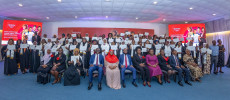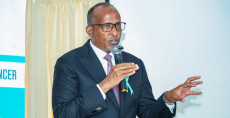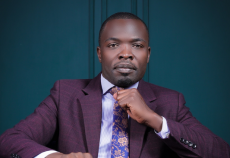- September 30th marks International Translation Day, an annual global tribute to the professionals who make understanding across linguistic divides possible. This year, the focus is less on the digital tools that assist them, and more on the irreplaceable human element the art and trust that only a professional can provide.
- The International Federation of Translators (FIT) has advocated for the idea that translation is an art worth protecting. This is not just a poetic sentiment; it is a call for professional recognition and rights in the digital age.
September 30th marks International Translation Day, an annual global tribute to the professionals who make understanding across linguistic divides possible. This year, the focus is less on the digital tools that assist them, and more on the irreplaceable human element the art and trust that only a professional can provide.
Every year on the Feast Day of St. Jerome the patron saint of translators for his monumental work on the Latin Vulgate Bible, the global community pauses to honour the silent architects of cross-cultural understanding: the translators, interpreters, and terminologists.
In a world defined by instant global connection, e-commerce, and endless stream of information, the role of these language professionals is often taken for granted. We share documents, launch multinational campaigns, and conduct high-stakes diplomacy, all enabled by the seamless shift of words from one tongue to another.
In 2025, the conversation around translation is dominated by one acronym: AI. Machine Translation (MT) tools are more powerful than ever, providing near-instant, context-aware translations. This technological advancement has raised an essential, timely question: Are human translators on the path to obsolete?
International Translation Day serves as a resounding "No."
Read More
The current relevance of human translators lies precisely in the areas where even the most advanced AI fails:
Cultural Nuance and Context where a machine can translate words, but it cannot translate culture, high-stakes trust in fields like legal documentation, medical interpretation, and international diplomacy, the stakes are too high for "good enough.
The theme for recent celebrations has often circled back to the importance of human trust in ensuring accurate, ethical, and responsible communication, especially in unsettled times.
Preservation of indigenous languages lack the vast data sets required for quality AI translation. Human translators are the front-line soldiers in the crucial battle to preserve linguistic diversity, translating oral histories, ancient texts, and community knowledge before it is lost.
The International Federation of Translators (FIT) has advocated for the idea that translation is an art worth protecting. This is not just a poetic sentiment; it is a call for professional recognition and rights in the digital age.
Just as a musician's work is protected, a translation is a creative work in its own right an intricate re-weaving of meaning that deserves copyright and fair compensation. As more content is fed into AI systems, there is a growing need to ensure that the intellectual property and livelihoods of language professionals are protected and valued.
Ultimately, International Translation Day is a moment to recognize that the work of translators extends far beyond commerce and technology. The United Nations (UN) recognizes the role of these professionals in fostering Dialogue and Understanding, promoting Human Rights and driving sustainable development.
On this September 30th, as the world celebrates, we are reminded that translation is not a technical task of swapping one word for another. It is an act of human empathy, a deep dive into another’s world, and a powerful, enduring force for global unity.
It is the art of ensuring that though our languages are many, our shared human experience remains one.
Stay connected with us on WhatsApp and X for instant updates and breaking news as it happens.






-1769608133-md.jpg)



